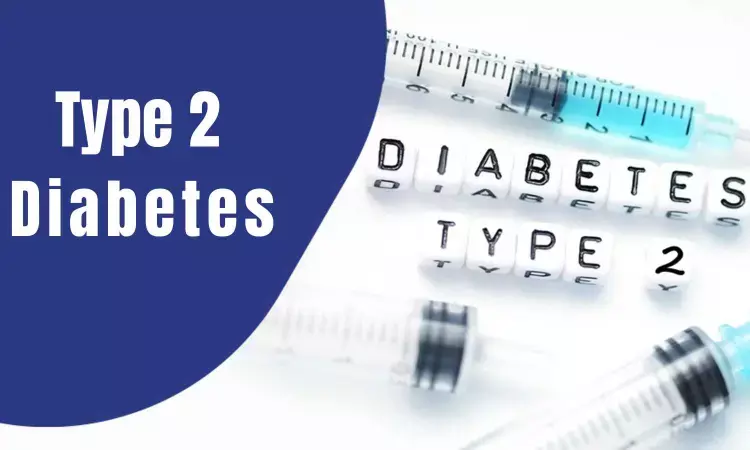- Home
- Medical news & Guidelines
- Anesthesiology
- Cardiology and CTVS
- Critical Care
- Dentistry
- Dermatology
- Diabetes and Endocrinology
- ENT
- Gastroenterology
- Medicine
- Nephrology
- Neurology
- Obstretics-Gynaecology
- Oncology
- Ophthalmology
- Orthopaedics
- Pediatrics-Neonatology
- Psychiatry
- Pulmonology
- Radiology
- Surgery
- Urology
- Laboratory Medicine
- Diet
- Nursing
- Paramedical
- Physiotherapy
- Health news
- Fact Check
- Bone Health Fact Check
- Brain Health Fact Check
- Cancer Related Fact Check
- Child Care Fact Check
- Dental and oral health fact check
- Diabetes and metabolic health fact check
- Diet and Nutrition Fact Check
- Eye and ENT Care Fact Check
- Fitness fact check
- Gut health fact check
- Heart health fact check
- Kidney health fact check
- Medical education fact check
- Men's health fact check
- Respiratory fact check
- Skin and hair care fact check
- Vaccine and Immunization fact check
- Women's health fact check
- AYUSH
- State News
- Andaman and Nicobar Islands
- Andhra Pradesh
- Arunachal Pradesh
- Assam
- Bihar
- Chandigarh
- Chattisgarh
- Dadra and Nagar Haveli
- Daman and Diu
- Delhi
- Goa
- Gujarat
- Haryana
- Himachal Pradesh
- Jammu & Kashmir
- Jharkhand
- Karnataka
- Kerala
- Ladakh
- Lakshadweep
- Madhya Pradesh
- Maharashtra
- Manipur
- Meghalaya
- Mizoram
- Nagaland
- Odisha
- Puducherry
- Punjab
- Rajasthan
- Sikkim
- Tamil Nadu
- Telangana
- Tripura
- Uttar Pradesh
- Uttrakhand
- West Bengal
- Medical Education
- Industry
Switching from liraglutide to semaglutide leads to weight loss and improves blood sugar control in type 2 diabetes

Japan: Switching from once-daily liraglutide to once-weekly semaglutide 0.5 mg notably improves blood sugar control and body weight versus switching to once-weekly dulaglutide 0.75 mg, a recent study shows. The study was featured in the Journal of Diabetes Investigation.
GLP-1RAs (Glucagon-like peptide-1 receptor agonists) promote insulin secretion in a blood glucose-dependent manner to reduce hypoglycemia occurrence. Simultaneously, glucagon secretion is suppressed. GLP-1RAs also suppress appetite, delay gastric emptying, and have a probable weight-loss effect.
A once-daily human GLP-1RA, liraglutide, has been shown to reduce the incidence of the 3-point MACE (major adverse cardiac events; non-fatal stroke, non-fatal myocardial infarction, and cardiovascular death) compared with a placebo. In patients treated with semaglutide, similar findings were seen. Also, dulaglutide does not result in remarkable between-group differences in the rate of non-fatal myocardial infarction or CV death but significantly reduces the rate of non-fatal stroke. Based on these findings, the Japanese guidelines and the American Diabetes Association recommend using GLP-1RAs as effective therapeutic agents to help patients maintain an everyday life and promote longevity in healthy people.
Against the above background, Yasuo Terauchi, Yokohama City University Graduate School of Medicine, Yokohama, Japan, and colleagues aimed to investigate the effects of switching from liraglutide to semaglutide or dulaglutide on body weight, blood glucose, and the occurrence of adverse effects in clinical practice in an open-label, prospective, randomized, parallel-group controlled trial.
For this purpose, the researchers recruited type 2 diabetes treated with liraglutide (0.9 or 0.6 mg) at Yokosuka Kyosai Hospital in Japan from 2020 to 2022 and, after informed consent was assigned to the dulaglutide or semaglutide group in the ratio of 1:1. Post-treatment changes in the glycated haemoglobin level were evaluated from baseline to weeks 8, 16, and 26.
The study led to the following findings:
- Out of 32 participants initially enrolled, 30 completed the study.
- In the semaglutide group, glycemic control was significantly better than in the dulaglutide group (−0.42 ± 0.49% vs −0.00 ± 0.34%).
- There was a significant body weight reduction in the semaglutide group (−2.6 ± 3.6 kg), whereas the researchers did not observe any change in the dulaglutide group (−0.1 ± 2.7 kilograms).
- A significant difference in body weight was found between the groups.
- The proportion of participants who reported adverse events was 18.8% and 75.0% in the dulaglutide and semaglutide groups, respectively.
- In the semaglutide group, one patient had difficulty continuing treatment due to severe vomiting and weight loss.
"In the semaglutide group, we found a significant improvement in body weight and glycemic control compared with the dulaglutide group," the researchers concluded.
In the semaglutide group, once-daily liraglutide was switched to once-weekly semaglutide 0.5 mg, and in the dulaglutide group, once-daily liraglutide was switched to once-weekly dulaglutide 0.75 mg.
Reference:
Iijima, Takahiro, et al. "Effects of Switching From Liraglutide to Semaglutide or Dulaglutide in Patients With Type 2 Diabetes: a Randomized Controlled Trial." Journal of Diabetes Investigation, 2023.
Dr Kartikeya Kohli is an Internal Medicine Consultant at Sitaram Bhartia Hospital in Delhi with super speciality training in Nephrology. He has worked with various eminent hospitals like Indraprastha Apollo Hospital, Sir Gangaram Hospital. He holds an MBBS from Kasturba Medical College Manipal, DNB Internal Medicine, Post Graduate Diploma in Clinical Research and Business Development, Fellow DNB Nephrology, MRCP and ECFMG Certification. He has been closely associated with India Medical Association South Delhi Branch and Delhi Medical Association and has been organising continuing medical education programs on their behalf from time to time. Further he has been contributing medical articles for their newsletters as well. He is also associated with electronic media and TV for conduction and presentation of health programs. He has been associated with Medical Dialogues for last 3 years and contributing articles on regular basis.
Dr Kamal Kant Kohli-MBBS, DTCD- a chest specialist with more than 30 years of practice and a flair for writing clinical articles, Dr Kamal Kant Kohli joined Medical Dialogues as a Chief Editor of Medical News. Besides writing articles, as an editor, he proofreads and verifies all the medical content published on Medical Dialogues including those coming from journals, studies,medical conferences,guidelines etc. Email: drkohli@medicaldialogues.in. Contact no. 011-43720751


